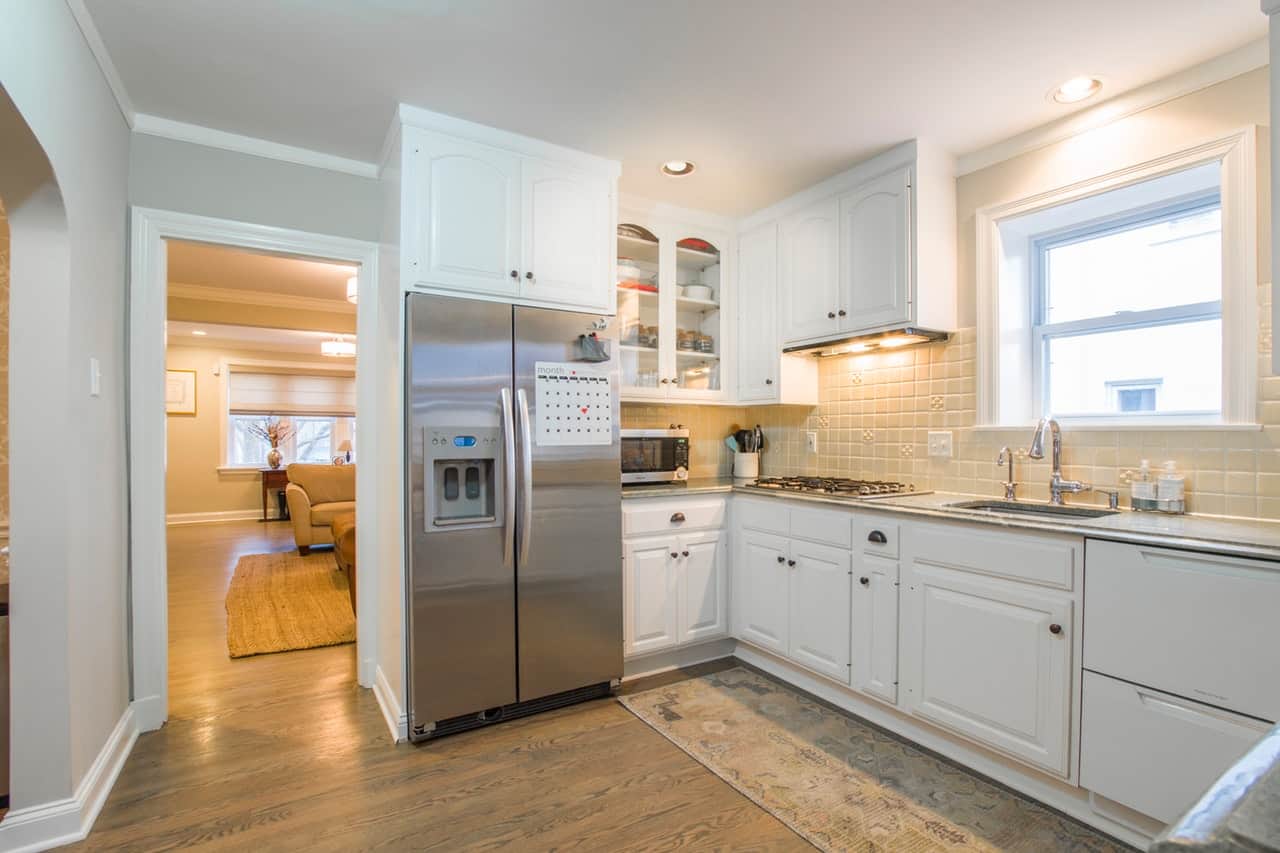Creaky cupboards. Peeling cabinets. Dim floors. Outdated look. Appliances are groaning their last protests. If any or all of these words describe your kitchen, then you are probably considering a remodel project and are not alone.
A kitchen remodeling project does not only help upgrade your culinary haven, it can also add value. Most homebuyers place the kitchen in their list of top three most important spaces and will pay more for a home with a well-thought-out upgrade, such as adding Custom Kitchen Cabinets.
This article will explain most things you need to know to achieve your dream kitchen:
How much does a kitchen remodel cost?
The cost of a kitchen remodel project largely depends on the kitchen size, smart features, and your preferences. Location and quality of labor are other factors that influence the overall cost.
The average cost of a kitchen remodel is $27,000. Minor projects can cost $12,000, and major upgrades can cost $60,500.
Factors that affect kitchen remodel cost
Size
Studies show a direct correlation between kitchen size and average remodel cost. In the US, for instance, expect to pay around $75 to $250 per square foot for a full kitchen renovation. A 100 sq ft galley kitchen might cost roughly $7,500 to $25,000, while a 250 sq ft chef’s haven could balloon to $18,750 to $62,500.
Permits
Depending on your local building code, you might need permits and inspections for various aspects of your kitchen remodel, like electrical work, plumbing work, new construction, and controlled demolition. The permits cost between $450 to $2,500.
Location
Like most home renovation projects, location plays a significant role in the cost of kitchen remodeling. For instance, the average cost of minor/midrange kitchen remodeling in San Francisco, California, is $25,340, while similar projects cost $27,590 in Williamsport, Pennsylvania.
Repairs
Minor repairs like fixing wobbly cabinet doors, patching cracked tiles, or re-grouting countertops can extend the life of your existing kitchen elements and significantly reduce your renovation costs.
Repair costs vary depending on what needs to be fixed and the extent of the damage. Contractors generally charge between $50 to $150 per hour, while specialized services like electrical work can be more expensive.
Appliances
The quality of the appliances you intend to install in the kitchen may increase the overall cost of the remodeling project.
It is also vital to consider the cost of hauling the appliances. Hiring a mover can cost between $25 to $50 per hour.
Budgeting for a kitchen remodel
The cost of kitchen remodeling can quickly increase as it is easy to get carried away by fantastic features that will look good in your cooking haven.
Starting your kitchen upgrade project without a budget can lead to frustration, stress, and a potentially unfinished project.
Don’t let your dream kitchen turn into a financial nightmare. Budgeting sets expectations and saves you from remodeling remorse.
Cabinetry takes up about 29 percent of homeowners’ budget for a kitchen remodel, followed by installation and labor, 17 percent.
Tips to budget for a kitchen remodel project
- Examine your financial stamina to decide the maximum amount you can comfortably expend.
- Do a full cost breakdown of the project:
Cabinetry – 20 percent
Installation and labor – 17 percent
Appliances and ventilation – 14 percent
Countertops – 10 percent
Flooring – 7 percent
Lighting – 5 percent
Backsplash – 5 percent
Walls and ceilings – 5 percent
Doors and windows – 4 percent
Faucets and plumbing – 4 percent - Set aside 20 percent of the total budget for contingency
- Arrange the project milestone on a scale of preference based on priorities
- Strategize how to fund the project
- Decide whether to stay or move out during the renovation and the financial implications of the latter
- Handle parts of the renovation that can be easily handled with DIY skills to reduce expenses
- Don’t be tempted to deviate from your budget mid-project
What is the ROI of a kitchen remodel?
Generally, kitchen remodels are classified into minor, midrange, and major/upscale. A minor remodel project includes repainting walls and upgrading flooring and countertops using affordable materials. This upgrade is usually for a cosmetic refresh with little or no concern for luxury.
Midrange remodels include upgrading your appliances, replacing sink and faucet with top-quality materials, and adding semi-custom cabinets. The Return on Investment (ROI) for minor and midrange kitchen remodels is about 85.7 percent.
Major remodels are also called large-scale or luxury upscale. They include changing the size and layout of the kitchen, plumbing work, and installing custom cabinets and high-end appliances. The ROI is about 41.8 percent.
Consider a minor or midrange remodel if you plan to sell your home within a year or two. However, if you intend to stay at home for a more extended period, a major upgrade that is beneficial for your family should be prioritized.
Should I remodel my kitchen?
Pros
- Improved safety
- Spacious kitchen
- Increased energy efficiency
- Higher home value
- Luxury look and feel
- Faster sales
- Allows cooking varieties of ditches
Cons
- It can be costly
- Major/upscale remodeling has a low ROI
- DIY projects can be unsafe
